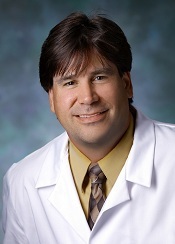by
Lauren Dubinsky, Senior Reporter | July 23, 2014
A new data collection system called Oncospace may help physicians make optimal treatment decisions for cancer patients. A study investigating the system was presented at the annual American Association of Physicists in Medicine meeting.
Oncospace works by gathering comprehensive information on patients with head and neck cancer including their family history, medications, surgical procedures, test results, tumor characteristics, treatments and outcomes. By doing that, the researchers can detect patterns, predict potential side effects and collect other information that will aid them in coming up with the best treatment plan.
The study presented at the meeting is part of the researchers' Oncospace analytic program which aims to collect information on all patients to personalize care for new patients. The study investigated whether they can use the radiation dose imagery to better predict toxicities for the patients in order to improve treatment plans.
The researchers compiled a database of more than 500 patients and they are continuing to add more to it.
"Our whole goal with this program is to collect information on all of our patients, basically treating them as if they're all on a clinical trial, and use that mass information or knowledge to personalize the care for new patients," Todd McNutt, lead author of the study and associate professor of medical physics and director of clinical informatics in radiation oncology at the Johns Hopkins University School of Medicine, said in a teleconference.
The researchers found that based on information from 513 head and neck cancer patients, those who got high doses of radiation to small areas of the larynx, esophagus and muscles of the throat were more likely to have trouble swallowing.
Additionally, they found that patients who had lower doses of radiation to larger areas of the salivary glands, inside of the mouth, or lower jaw were more likely to have dry mouth.
For the new patients, the physicians are able to plan for the side effects or prevent them by altering the radiation treatment plan. "We use that big data to predict how new patients are going to carry out their course of treatment so that we can intervene much earlier or plan the best care for them," said McNutt.
The researchers are also collecting information on other cancers including pancreas and prostate cancer and they are planning on expanding the program and sharing it with other institutions in order to compare practices and ultimately improve treatment.
Back to HCB News
